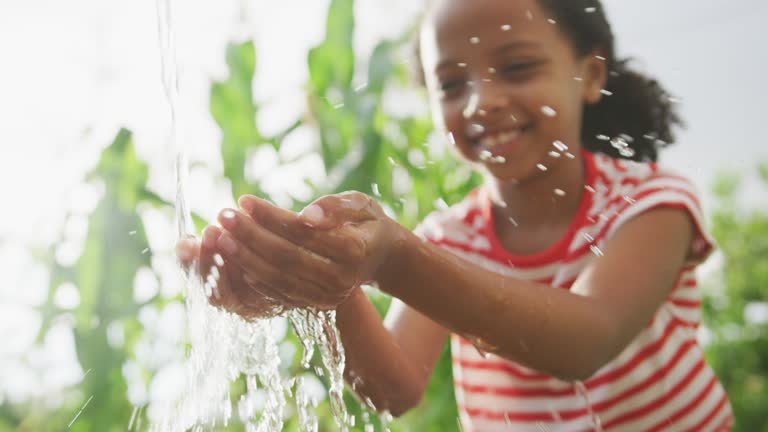Water is one of the most valuable resources on Earth, yet it is often taken for granted. From brushing teeth and bathing to growing food and producing electricity, water is essential to every aspect of life. However, the world is facing increasing water shortages due to climate change, population growth, and pollution. This is why water conservation is more important today than ever before — and surprisingly, kids can play a big role in protecting this precious resource.
Teaching children the value of water early helps them grow into responsible citizens who care for the planet. Through simple habits, awareness, and participation in school and home activities, children can become real water heroes.
What is Water Conservation?
Water conservation means using water wisely to avoid unnecessary waste. It involves small actions like turning off taps when not in use, fixing leaks, using water-efficient appliances, and reusing water when possible. These actions, when practiced regularly, can significantly reduce the amount of water that is wasted every day.
Many schools now include Environmental Education in their curriculum to help students understand how natural resources work and why protecting them is essential for the future.
Why Is Water Conservation Important?
Water may cover a large part of the Earth’s surface, but only a small percentage of it is safe and usable for humans. As cities grow and industries expand, the demand for clean water increases. Unfortunately, rivers and lakes are becoming polluted, and underground water levels are falling rapidly.
Here are some key reasons why conserving water is important:
- It ensures enough water for future generations
- It protects natural ecosystems such as rivers, forests, and wetlands
- It helps in saving energy used for pumping and purifying water
- It reduces the risk of droughts and water-based conflicts
Children must understand that each drop counts. By learning to respect water, they help in building a sustainable world.
How Kids Can Contribute to Water Conservation
Children may think only adults can make a difference, but that is not true. In fact, kids are powerful change-makers. With a little creativity and commitment, they can encourage their families and friends to become more responsible with water.
Here are simple ways kids can help:
1. Turn Off the Tap
While brushing teeth or washing hands, kids should turn off the tap instead of letting the water run. This simple habit can save several litres of water each day.
2. Take Shorter Showers
Long showers can waste a lot of water. Encouraging children to take quick, efficient baths can significantly reduce water usage at home.
3. Reuse Water
Leftover water from washing fruits and vegetables can be used to water plants. This teaches children the importance of using resources efficiently.
4. Report Leaks
A dripping tap may seem harmless, but it can waste hundreds of litres in a month. Kids can help by informing adults if they spot a leaking tap or pipe at home or in school.
5. Spread Awareness
Children can make posters, present speeches, or create skits about saving water. Many international schools in electronic city actively encourage such eco-friendly initiatives through campaigns, competitions, and environmental clubs to raise awareness among students.
Linking Water Conservation with Healthy Living
Saving water is closely connected to Food and Nutrition. Farmers need large amounts of water to grow crops such as vegetables, fruits, rice, and wheat. If water becomes scarce, food production is affected, leading to higher prices and shortages.
By conserving water, children are indirectly helping ensure that enough food is produced for everyone. It also teaches them to respect the connection between natural resources and the food on their plates.
Role of Schools in Promoting Water Conservation
Schools play a major role in shaping children’s habits. Activities such as rainwater harvesting, eco-clubs, plantation drives, and awareness sessions help students understand real-life environmental challenges.
Some international schools in bannerghatta road have already adopted eco-friendly practices like recycling water, using sensor taps, and organizing sustainability workshops. These practices not only save water but also inspire students to adopt similar habits at home.
Teachers can include water-saving topics in science and geography lessons, while students can take part in community clean-up programs and campaigns to keep local water bodies clean.
Fun Activities for Students to Learn Water Conservation
To make learning enjoyable, here are some fun and engaging activities kids can try:
- Create a “Water Saving Chart” at home
- Participate in poster-making competitions
- Conduct a small research project on local water sources
- Build a mini rainwater harvesting model
- Start a “Save Every Drop” campaign in school
These activities make learning interactive and help children understand that protecting water can be both fun and meaningful.
The Future Depends on Today’s Actions
Every generation is responsible for taking care of the planet for the next. If children learn the value of natural resources today, they will grow up to become responsible leaders who protect the environment tomorrow.
Water conservation is not just an environmental issue. It is a life issue. By making small changes in daily routines, children and adults together can ensure a brighter, healthier, and more sustainable future.

